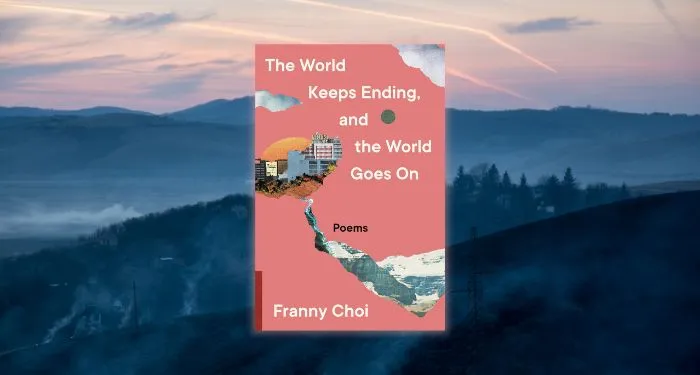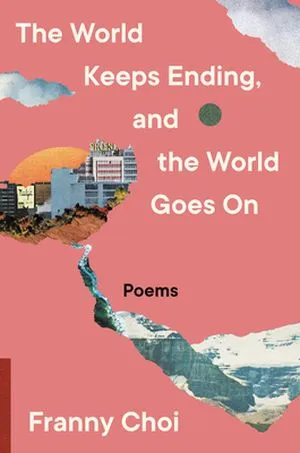
These Poems are Visceral, Immediate, and Urgent
Today’s recommendation is a book I love so much I’ve read it twice. I’m currently working my way through a slow reread with a syllabus I made myself comprised of poems and poets that Choi references in the collection itself and in the notes. It’s a book I recommend to poetry newbies and seasoned readers alike, as there are endless ways to experience it.

The World Keeps Ending, and the World Goes On by Franny Choi
Franny Choi, the current Poet Laureate of Northampton, MA, has published four books of poems and is one of the co-editors of the recently released anthology We the Gathered Heat: Asian American and Pacific Islander Poetry, Performance, and Spoken Word. The World Keeps Ending, and the World Goes On came out in 2022, in the midst of the ongoing pandemic, and it captures so much of what I was feeling then, and what I’m still feeling now.
How did we get here? How do we go on living in a world full of so much death, destruction, violence, injustice? What can any of us do about it all? Choi approaches these questions by looking to history. We may be living through an apocalypse, but it’s not the first one. Marginalized people have lived through the ending of the world before. In the titular poem, Choi catalogues these many past and continuing apocalypses—some enormous, like the colonization of the Americas, and some small and personal. “I was born from an apocalypse / and have come to tell you what I know—” the speaker says.
In the poems that follow, Choi writes about climate grief and protest movements, about the tiny everyday wonder of sharing a life with beloveds, and the violent legacies of the Korean War. They write about hopelessness and hopefulness and small acts of resistance. They write from an imagined future in which we are free, and they write into the how of that imagined future: how do we build that world? What do we have to give up and let go of? What space do we need to make for grief? They wrestle with these questions in mourning songs and manifestos, thoughtful how-to guides for solidarity and protest, speculative poems and prose poems, love poems and poems that reckon with the past.
You don’t have to “get” poetry to love this book. These poems are visceral, immediate, and urgent. They speak to the impossibility of living in a world full of so much grief and so much joy. Choi is wonderfully inventive with form and their images often startle gasps from me, but what makes this book so special is how it feels to read it. It is heartrending and heart-healing, both. It’s the book I turn to when I wake up wracked with despair, because it reminds me that, yes, feeling despair is natural in these times, and no, despair is not the only thing I have to feel.
I’ll leave you with this excerpt from one of my favorite poems, ‘Dispatches from a Future Great-Great-Granddaughter’, which captures the tender, powerful hope this collection instills in me:
“What you gave me isn’t wisdom, and I have no wisdom in return, / just handfuls of lifestock: Every day, a sky is. // Miles are. We sing, entangled, and the root-world answers, / and together we’re making. Something of it. Something // of all the questions you left.”
If you found this post online and want reading recommendations in your inbox, sign up for Read This Book here!











